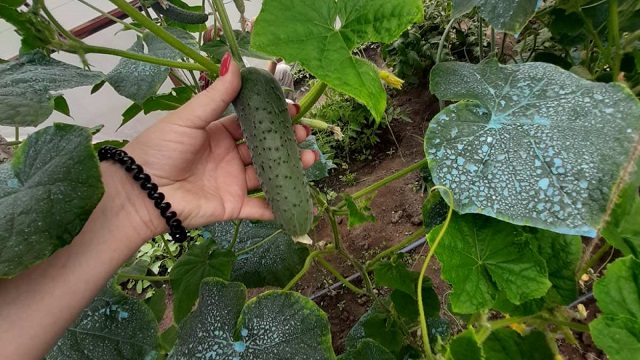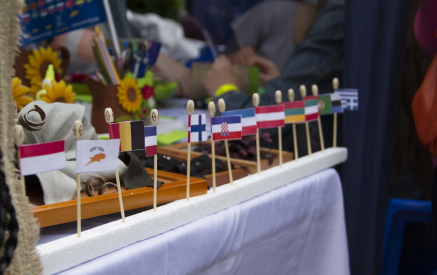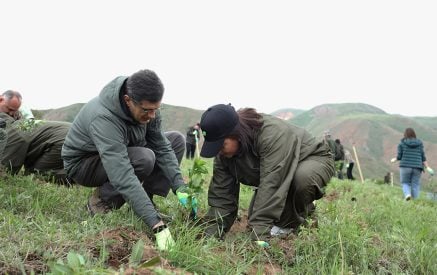EU NEIGHBOURS. Sixteen teachers from participating schools and institutions in Moldova took part in an EU4Youth training on school gardens, aimed at sharing experience and developing activities within the project.
The training on ‘School Garden – perspectives and opportunities for rural areas in the Republic of Moldova’ was organised by the National Environment Centre on 18-19 June 2020. It took place in conditions of maximum safety and social distancing, at the gymnasium in Oxentea, Dubasari district (on 18 June) and at Ecovillage Moldova in Rascova, Criuleni district (on 19 June).
The seminars were aimed at face-to-face discussion of activities between participants from the first generation of the project and those who were selected through a competition this year.
The teachers got acquainted with the experience of the participants from the Grigore Vieru Primary School, t. Ștefan Vodă, Țaul Centre of Excellence and EcoVillage Moldova from Râșcova, while representatives from the hosting Oxentea Gymnasium organised a presentation for participants in which they showed them the greenhouses, the garden, and the plants cultivated within the project – tomatoes, cucumbers, carrots, beets, beans and onions.
Read also
The participants also discussed how the activities could be carried out in the new year of studies, considering the new conditions, adapting their plans of activities.
A model of the packaging and labels for the products from the School garden was elaborated with the hope that in the autumn participating schools will be able to go to fairs to sell products from their school gardens.
The second day of the seminar was more practical. Participants learned about good practices for collecting rainwater for irrigation and designing the garden in a sustainable way. The representative of the Ecovillage, Liliana Botnaru, also presented soil protection techniques: crop rotation, mulching, terracing and how soil tillage affects biodiversity.
An interesting and important topic for organic farming discussed by the participants was natural methods of plant protection – how plants can be combined to protect them from harmful insects or other invasive plants.
The training brought clarity in the way in which the project must be managed at the level of educational institutions in the current conditions, which activities must be included and which actors must be involved in its succesful implementation.
The project EU4Youth: ‘School Garden’ for Agricultural Entrepreneurship aims to foster the employability and active participation of young people residing in disadvantaged rural areas of Belarus, Ukraine and Moldova in society and economy by developing modern labour, leader and entrepreneur skills, and promoting new professional opportunities among them.




























































